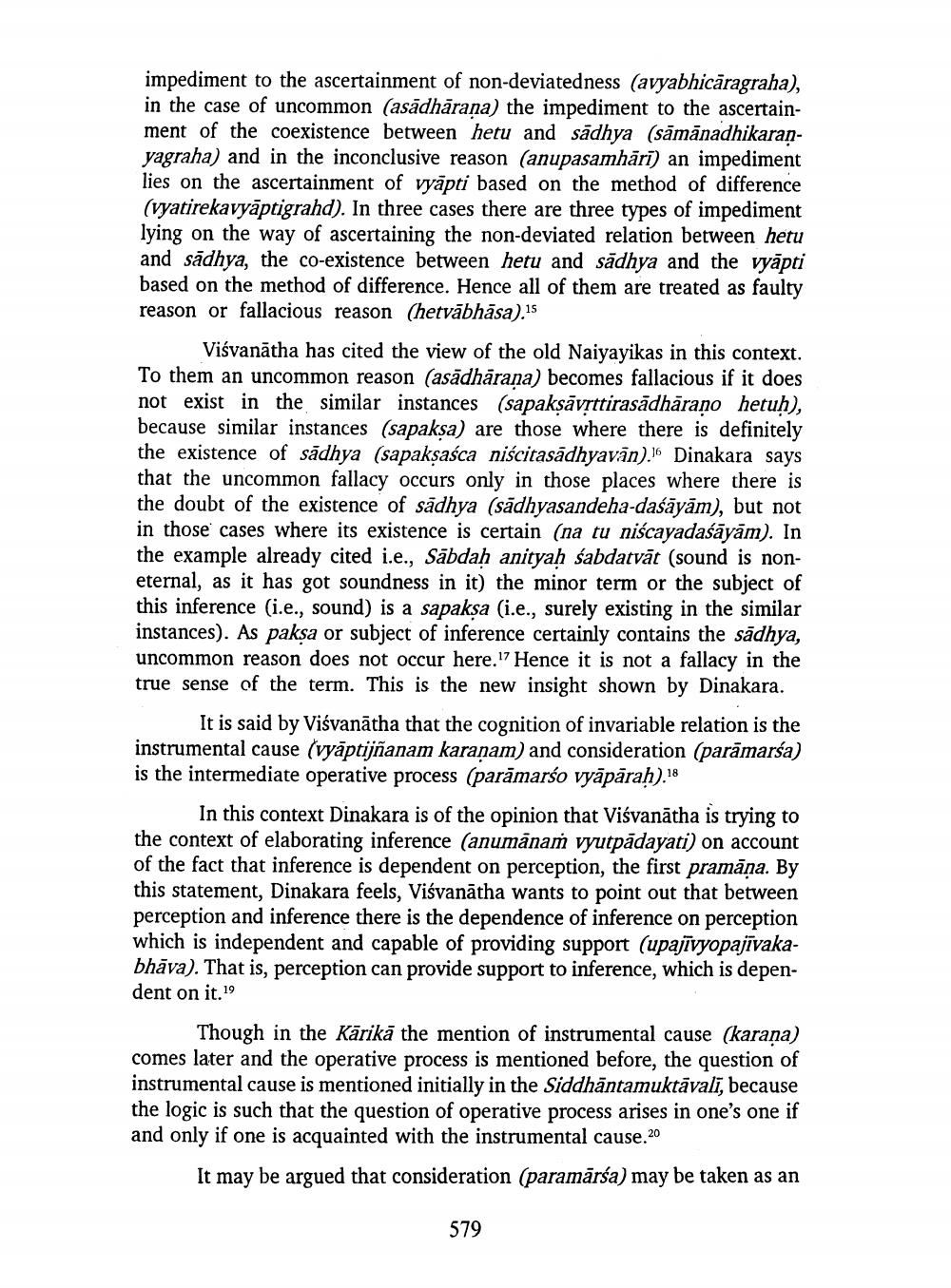________________
impediment to the ascertainment of non-deviatedness (avyabhicāragraha), in the case of uncommon (asādhāraṇa) the impediment to the ascertainment of the coexistence between hetu and sadhya (sāmānadhikaraṇyagraha) and in the inconclusive reason (anupasamhārī) an impediment lies on the ascertainment of vyäpti based on the method of difference (vyatirekavyaptigrahd). In three cases there are three types of impediment lying on the way of ascertaining the non-deviated relation between hetu and sadhya, the co-existence between hetu and sadhya and the vyapti based on the method of difference. Hence all of them are treated as faulty reason or fallacious reason (hetvābhāsa).15
Viśvanatha has cited the view of the old Naiyayikas in this context. To them an uncommon reason (asādhāraṇa) becomes fallacious if it does not exist in the similar instances (sapakṣāvṛttirasādhārano hetuḥ), because similar instances (sapakṣa) are those where there is definitely the existence of sadhya (sapakṣaśca niścitasadhyavān). Dinakara says that the uncommon fallacy occurs only in those places where there is the doubt of the existence of sadhya (sadhyasandeha-daśāyām), but not in those cases where its existence is certain (na tu niscayadaśāyām). In the example already cited i.e., Sabdaḥ anityaḥ śabdatvāt (sound is noneternal, as it has got soundness in it) the minor term or the subject of this inference (i.e., sound) is a sapaksa (i.e., surely existing in the similar instances). As paksa or subject of inference certainly contains the sadhya, uncommon reason does not occur here." Hence it is not a fallacy in the true sense of the term. This is the new insight shown by Dinakara.
It is said by Viśvanatha that the cognition of invariable relation is the instrumental cause (vyāptijñanam karaṇam) and consideration (parāmarśa) is the intermediate operative process (paramarso vyāpāraḥ).18
In this context Dinakara is of the opinion that Viśvanatha is trying to the context of elaborating inference (anumanaṁ vyutpādayati) on account of the fact that inference is dependent on perception, the first pramāṇa. By this statement, Dinakara feels, Viśvanatha wants to point out that between perception and inference there is the dependence of inference on perception which is independent and capable of providing support (upajivyopajīvakabhāva). That is, perception can provide support to inference, which is dependent on it.19
Though in the Kārikā the mention of instrumental cause (karaṇa) comes later and the operative process is mentioned before, the question of instrumental cause is mentioned initially in the Siddhāntamuktāvalī, because the logic is such that the question of operative process arises in one's one if and only if one is acquainted with the instrumental cause.20
It may be argued that consideration (paramārśa) may be taken as an
579




